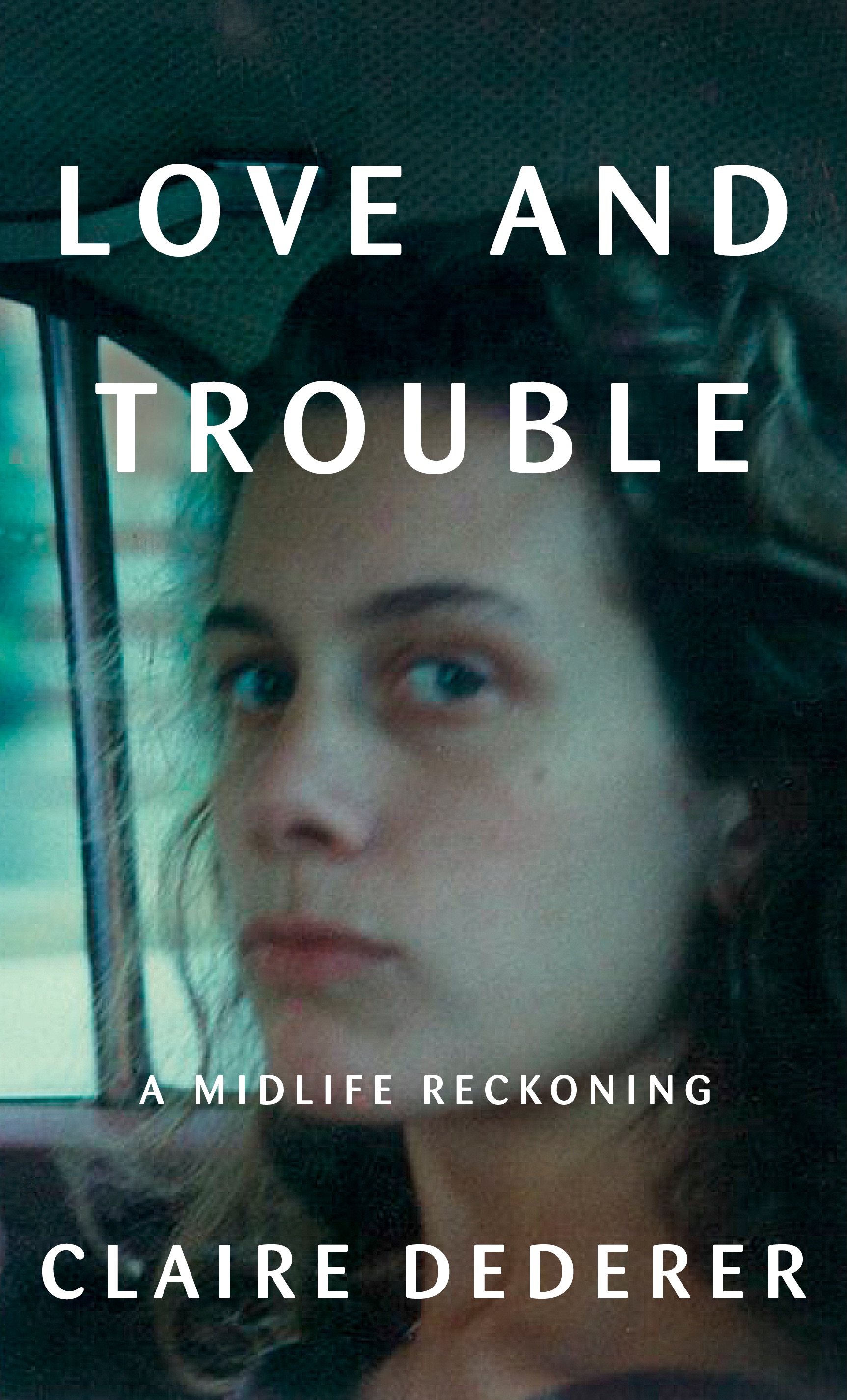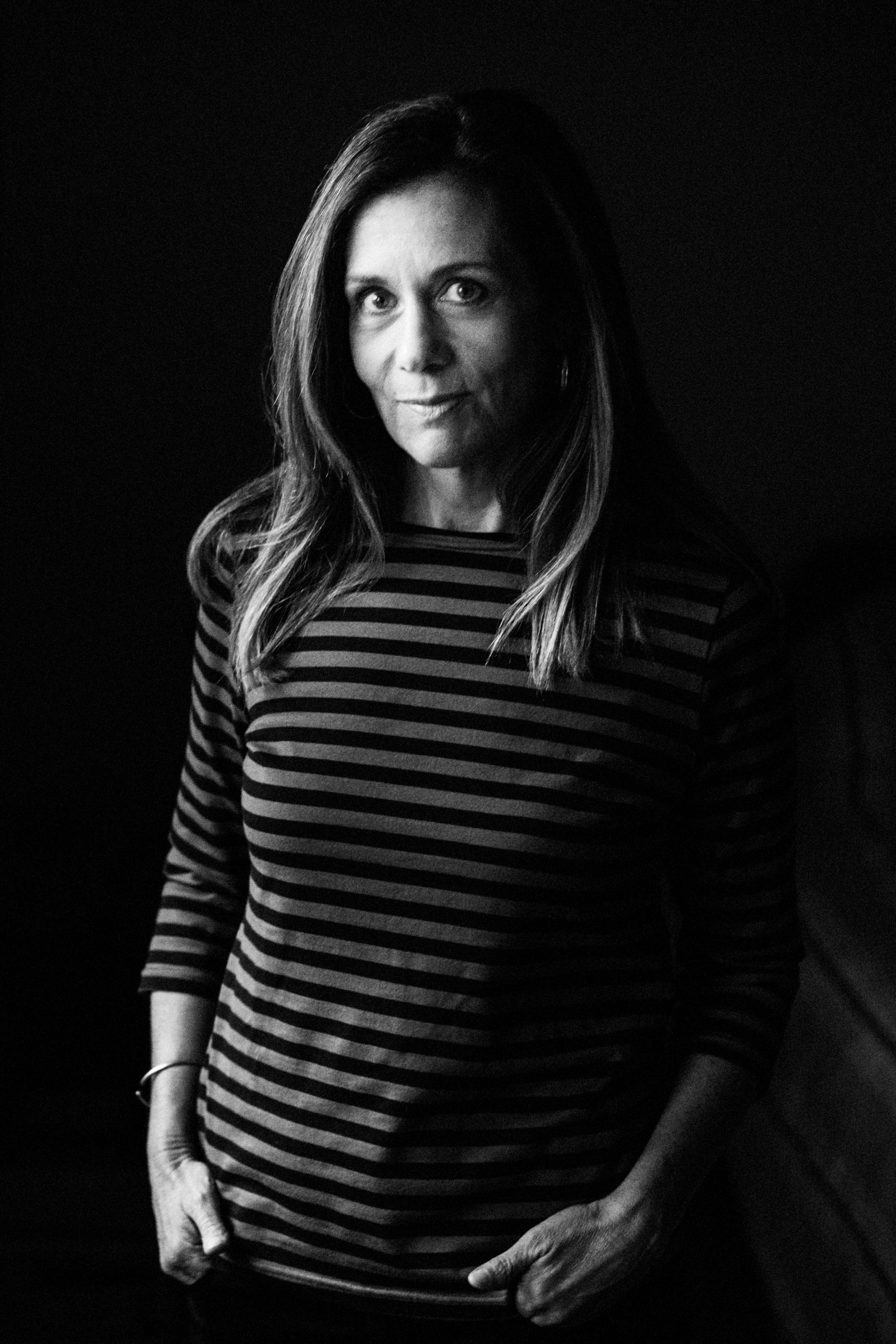Blog
Meet a Visiting Author: Claire Dederer
Seattle-area writer and critic Claire Dederer won national attention with her acclaimed and best-selling 2012 memoir Poser: My Life in Twenty-three Yoga Poses. Her new memoir, Love and Trouble: A Midlife Reckoning, publishes in May. Dederer will speak at Mineral School on Thursday, September 20th at 7:30 PM. Fiction author and super-volunteer Kait Heacock conducted this interview. Thanks, Kait and Claire!
Congratulatio ns on the new book, Love and Trouble: A Midlife Reckoning. Let’s start with it: How did you know it was time for another memoir? Does a theme emerge in your life or is there a period of time you’re interested in?
ns on the new book, Love and Trouble: A Midlife Reckoning. Let’s start with it: How did you know it was time for another memoir? Does a theme emerge in your life or is there a period of time you’re interested in?
I didn’t set out to write another memoir—I wanted to write a critical study of the filmmaker Roman Polanski. As I worked on that, I slowly realized that I wasn’t so much interested in Polanski as I was interested in the 13-year-old girl he raped in 1977. Then it didn’t take long for me to realize that what I really wanted to talk about was my own experience growing up in the sexually predatory 1970s, and how that shaped my own burgeoning sexuality. So I began writing a coming-of-age sexual memoir. I was a pretty bad, wild kid. From there, I realized that the reason this stuff was so interesting to me now, at age 44 (when I began the book), was that I was revisiting a lot of those old bad wild sexual feelings. That’s what the final book became—an exploration of the dynamic between teenage sexuality and midlife sexuality. So there was a trail to follow. This is how it usually works for me. There’s not a big game plan. At least not at first.
Are there ever topics that scare you or that you won’t touch? How do you combat the voice inside your head that wants you to filter or censor yourself? Or is the great accomplishment of the memoirist conquering that voice?
It’s a funny thing to say as the person who wrote Poser—a memoir that is largely about motherhood—but I shy away from writing about my children. They actually appear only briefly in either of my memoirs. I write instead about my own experience of being a parent. I feel an enormous amount of resistance to defining them on the page. Their stories are their own. As a mom it’s my job to protect their freedom and the possibilities that are before them. To write about them is to label them, limit them.
Speaking of scary topics, I see that your new memoir tackles female sexuality, both as a married woman and as an active teenager. You’ve written about your struggles with writing a memoir that focuses on sex. How did you overcome your anxiety and fear? How did you push the image of your mother out of your head while writing? Any tips for other writers struggling with this?
I feel that my new book has a strong feminist message, and I really wanted to get the story out there. That helped me overcome my nervousness—I had something I really needed to say. And of course there’s the fact that if we don’t say difficult things, we are ignoring the primary mandate of memoir. Memoir is an act of narcissism unless it provides some comfort to the reader. Our job as memoirists is to say what is difficult, and the reader recognizes herself, and feels less alone. If we don’t say the hard thing, we’re failing at our part of the deal. Also, somewhere along the way I decided I would simply tell my parents not to read the book, and that is what I have done. It’s an almost ridiculously simple solution.
Does this memoir touch on yoga as well? How does the practice of yoga interact with your writing? Do you think it’s important for writers to have a physical outlet, either to give them clarity about their work or else to help them clear their minds of it?
There’s one short scene set in a yoga studio, but that’s it. I still do yoga every day. I think any regular physical practice benefits writers, even if it’s just a walk. For starters, there’s the sitzfleisch to deal with—and then of course it’s important to clear one’s head.
How do you balance your work as a critic with being a writer? Is it ever difficult to shut off the inner critic when you edit your own work?
 Yes, the persistence of the inner critical voice is definitely an occupational hazard. But there’s an upside as well. I read so many books for review, and so I see how many bad books there are out there. A lot. Which is actually really heartening. It supports my feeling that if I keep my head down, and work hard, and produce something that’s actually good, my writing will find its way in the world. Part of my joy as a teacher is helping gifted students to see this as well.
Yes, the persistence of the inner critical voice is definitely an occupational hazard. But there’s an upside as well. I read so many books for review, and so I see how many bad books there are out there. A lot. Which is actually really heartening. It supports my feeling that if I keep my head down, and work hard, and produce something that’s actually good, my writing will find its way in the world. Part of my joy as a teacher is helping gifted students to see this as well.
How do you balance the desire to tell your story with the need to protect your children’s privacy? Do you show them the sections about them at any time during the writing process? What advice do you have for aspiring memoirists who want to write about their children?
I write about parenting but I avoid writing about my children specifically. And I do let them read anything and everything I write about them. They’re allowed to edit at will. So I can’t really speak to this particular topic, but I will say this: With memoir it’s always a good idea to make a considered ethical decision at the outset about how you’re going to proceed in writing about real people, whether they’re your children or your parents or your spouse. It doesn’t necessarily matter what that ethical parameter is—just make sure you have one, and follow it. Otherwise you’ll be in a morass, wondering all the time if you’re doing the right thing. And that will impair your ability to write.
Who are your favorite memoirists? What are you reading now? What contemporary authors excite you?
Right now I’m working on a long critical essay for Harper’s magazine about writers who conflate fiction and memoir—people like Karl Ove Knausgaard, Ben Lerner, and Rachel Cusk. In fact Rachel Cusk and Geoff Dyer are probably my favorite living writers. Cusk because of the quietly savage way she anatomizes human experience; Dyer because the facility of his voice is just spectacular. Everything I’ve written has been in some way very explicitly influenced by him. I pore over his books, trying to figure out how he does what he does. To use a cheesy but apt word, I find him magical.




